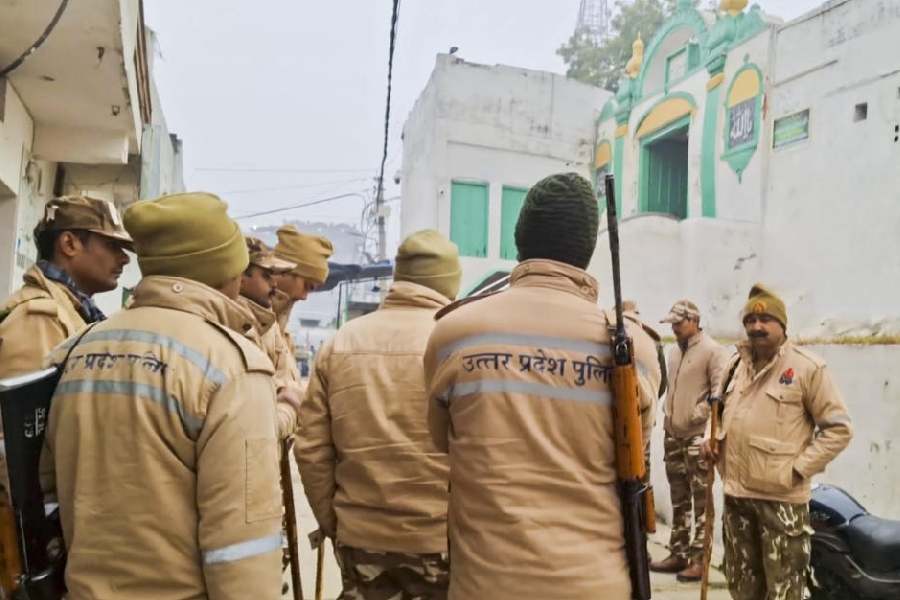The Supreme Court on Thursday said a sexual harassment case cannot be closed after a compromise is reached between the rival parties as such offences have serious impact on the society.
The observation came while setting aside an order of the Rajasthan High Court which had quashed the FIR against a teacher who was accused of sexually molesting a 16-year-old girl at school in Rajasthan's Sawai Madhopur district.
A bench of justices C T Ravikumar and Sanjay Kumar said the high court has misread and misapplied the law laid down to quash the subject FIR and all further proceedings.
"The commission of such offences against the children should be viewed as heinous and serious. Needless to say, that commission of such offences cannot be taken lightly as offences of private nature and in fact, such offences are bound to be taken as offences against the society...
"We are at a loss to understand how the High Court arrived at the conclusion that in the case on hand a dispute to be resolved exists between the parties and further that to maintain harmony the FIR and all further proceedings thereto should be quashed even without adverting to the allegations raised against the 3rd respondent in the subject FIR," the bench said.
The apex court also rejected the submission of the teacher and the father of the victim who challenged the locus standi of the PIL petitioner in the case "When by quashing the FIR by invoking the power under Section 482, CrPC, the accused was relieved of the liability to face the trial coupled with the aforesaid circumstances and the position of law qua locus standi of third party to maintain a petition under Article 136 of the Constitution of India, as revealed from the decisions referred above, we have no hesitation to hold that the challenge based on the appellants' locus standi got no merit at all," the bench said.
The top court said when an incident of this nature and gravity allegedly occurred in a higher secondary school, that too from a teacher, it cannot be simply described as an offence purely private and has no serious impact on society.
"We have no hesitation to hold that in cases of this nature, the fact that in view of compromise entered into between the parties, the chance of a conviction is remote and bleak also cannot be a ground to abruptly terminate the investigation, by quashing FIR and all further proceedings pursuant thereto, by invoking the power under Section 482, CrPC," the bench said.
The bench said the act committed by the accused would constitute an offence of 'sexual assault' under Section 7 of the POCSO Act, which is punishable with imprisonment of either description for a term which shall not be less than three years and may extend to five years and also fine.
"They would reveal that the commission of such offences against the children should be viewed as heinous and serious. Needless to say, the commission of such offences cannot be taken lightly as offences of a private nature. In fact, such offences are bound to be taken as offences against society," the bench said.
The apex court said the FIR, investigation and criminal proceedings against the teacher be proceeded in accordance with law.
"We make it clear that we shall not be understood to have made any observations on the merits of the case," it said.
In 2022, a PIL was filed by Ramjilal Bairwa, a native of Gangapur city in Rajasthan, challenging the closure of a serious non-compoundable criminal case by the high court in which the accused never got arrested.
On December 2, 2022, the top court had converted the PIL into Special Leave Petition under Article 136 of the Constitution.
According to the plea, the teacher, named in the FIR, was never arrested and a compromise was allegedly executed between the family members of the girl and the accused.
Taking note of the compromise, which was presented before the high court, the high court allowed the petition filed by the accused and quashed the proceedings.
It was alleged that though the high court observed that there was opposition on the part of the public prosecutor, it closed the case relying upon a judgement of the apex court which said that even the non-compoundable offence cases can be closed based on a compromise between the parties.
Except for the headline, this story has not been edited by The Telegraph Online staff and has been published from a syndicated feed.











